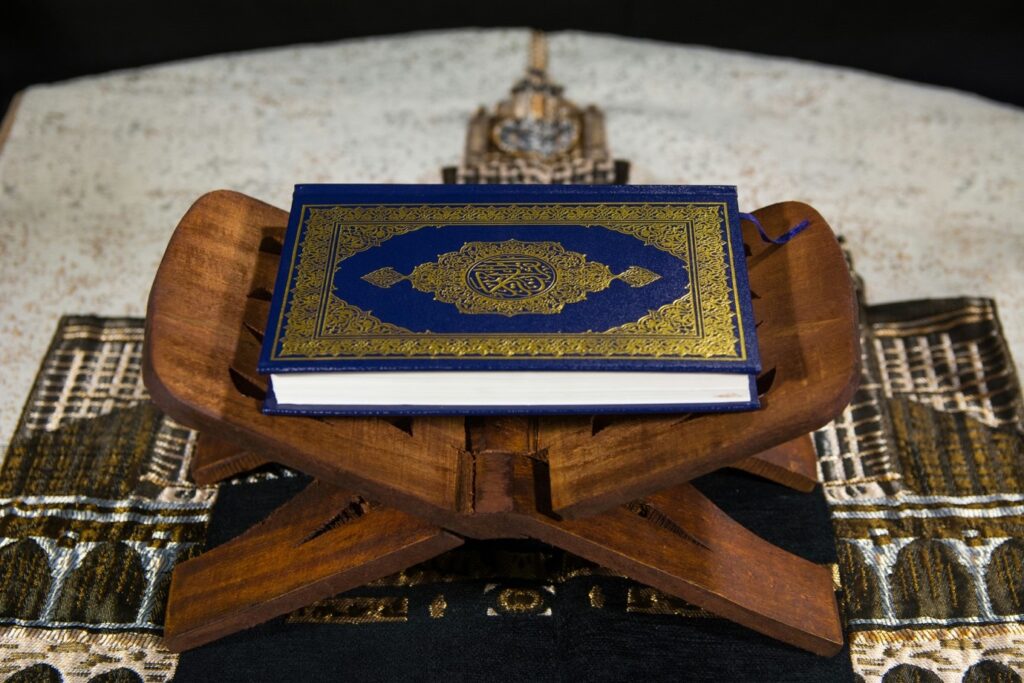Hajj,” an Arabic term meaning “to set out for a place,” signifies more than just a journey; it represents a profound spiritual pilgrimage that Muslims undertake annually to Makkah. This pilgrimage is not merely travel; it involves performing religious rites in the specific manner prescribed by the Prophet Muhammad. To understand the depth and significance of Hajj, one must journey back in time to its origins and the transformations it has undergone.
The origins of Hajj date back to the time of Prophet Ibrahim (Abraham). It was Ibrahim who, following Allah’s command, built the Kaaba—the House of Allah—alongside his son Ismail (Ishmael) in the sacred city of Makkah. Allah describes the sanctity and purpose of the Kaaba in the Quran:
“And remember when We showed Ibrahim the site of the [Sacred] House [saying]: Associate not anything [in worship] with Me and purify My House for those who circumambulate it [i.e., perform tawaaf] and those who stand up for prayer and those who bow down and make prostration [in prayer, etc.].” [Surah Al-Hajj 22:26]
Prophet Ibrahim would visit Makkah annually to perform Hajj, a tradition continued by his descendants. However, over the centuries, the pure monotheistic worship he established became corrupted. Idolatry spread throughout Arabia, defiling the Kaaba, which had initially been a symbol of pure worship, with idols and pagan rituals.

Over time, the rites of Hajj were distorted. The Kaaba housed numerous idols—over 360 of them—alongside images, including those of Jesus and Maryam (Mary). The sacred precincts of the Kaaba turned into a carnival-like atmosphere during Hajj. Men and women would circumambulate the Kaaba naked, claiming they should present themselves to Allah in their birth state. Prayers devolved into mere hand-clapping, whistling, and horn-blowing devoid of sincere remembrance of Allah. Even the sacred chant, or talbiah, was altered with inappropriate additions.
Sacrifices were made, but their blood was poured on the Kaaba’s walls, and flesh hung from its pillars, mistakenly believing Allah demanded these offerings. Immorality was rampant among the pilgrims, with singing, drinking, and adultery overshadowing the sacred rituals. Poetry competitions extolling tribal virtues and exaggerated bravery were a major part of Hajj festivities. Acts of generosity became mere spectacles to gain fame rather than acts of sincere charity.
For nearly two and a half millennia, these practices persisted until the supplication of Prophet Ibrahim was answered:
“Our Lord! Send amongst them a Messenger of their own, who shall recite unto them your aayaat (verses) and instruct them in the book and the Wisdom and sanctify them. Verily you are the ‘Azeezul-Hakeem [the All-Mighty, the All-Wise].” [Surah Al-Baqarah 2:129]
This messenger was none other than Muhammad ibn ‘Abdullah, born in Makkah. For twenty-three years, Prophet Muhammad spread the message of Tawheed (true monotheism) and established Allah’s laws. His efforts culminated in purifying the Kaaba, smashing the idols, and restoring it as the center of monotheistic worship.
Prophet Muhammad reinstated the original rites of Hajj established by Prophet Ibrahim, removing all pre-Islamic pagan practices. The Quran revealed specific injunctions to eliminate false rites.
“There is to be no lewdness nor wrangles during Hajj.” [Surah al-Baqarah 2:197]
Allah instructed pilgrims to remember Him rather than their forefathers:
“And when you have completed your rites [of Hajj], then remember Allah as you remember your forefathers; nay with a more vigorous remembrance.” [Surah al-Baqarah 2:200]
Generosity during Hajj was redefined, with Allah emphasizing that sacrifices should seek His pleasure, not human praise:
“So mention the name of Allah over these animals when they are drawn up in lines. Then, when they are drawn on their sides [after the slaughter], eat thereof and feed the beggar who does not ask, and the beggar who asks.” [Surah al-Hajj 22:36]

The Quran clarified that it is not the flesh or blood of the sacrifices that reaches Allah, but piety:
“It is neither their meat nor their blood that reaches Allah, but it is Taqwaa (piety) from you that reaches Him.” [Surah al-Hajj 22:37]
The Prophet abolished the practice of circumambulating the Kaaba in a state of nudity and emphasized the importance of clothing:
“Say: Who has forbidden the adornment [i.e., clothes] given by Allah which He has produced for His Slaves?” [Surah al-A’raaf 7:32]
The custom of setting off for Hajj without provisions, falsely equated with piety, was corrected:
“And take a provision [with you] for the journey, but the best provision is at-Taqwaa (piety).” [Surah al-Baqarah 2:197]
The transformation of Hajj under Prophet Muhammad reinstated it as a journey of piety, simplicity, and sincere devotion to Allah. The pilgrimage now embodies the remembrance of Allah at every step, with every action and sacrifice directed to Him alone. An accepted Hajj is thus considered a pathway to paradise, as the Prophet stated: “The reward for an accepted Hajj is nothing less than paradise.”
May Allah grant all Muslims the opportunity to visit His House and perform Hajj in the manner prescribed by Prophet Muhammad. Ameen.
Sources
https://www.hindustantimes.com/lifestyle/festivals/hajj-2024-from-prophet-ibrahim-to-today-origin-of-kaaba-and-rich-history-of-muslim-pilgrimage-to-mecca-in-saudi-arabia-101718179039207.html#:~:text=The%20origins%20of%20Hajj%20are,the%20one%20true%20God%2C%20Allah.https://en.wikipedia.org/wiki/History_of_the_Hajj




